Categories
Dear Partners, Supports, Colleagues and Friends,
As World Breastfeeding Week 2019 draws to a close, it is my pleasure to provide you with an update our work here at Wellbeing Foundation Africa. As ever, our midwives remain at the centre of our programs and advocacy activities. Last week we were proud to launch our new ‘Neonatal Intensive Care Lactation Support Pilot Program’, and I had the opportunity to meet with the leadership team at the Chelsea and Westminster Hospital NHS Foundation Trust.
Thank you to all of my colleagues and partners who continue to make our impact possible. As ever, please do not hesitate to get in touch with any of your thoughts, feedback or ideas. We are always learning from one another.
With many thanks,
Toyin Saraki
Founder-President, Wellbeing Foundation Africa
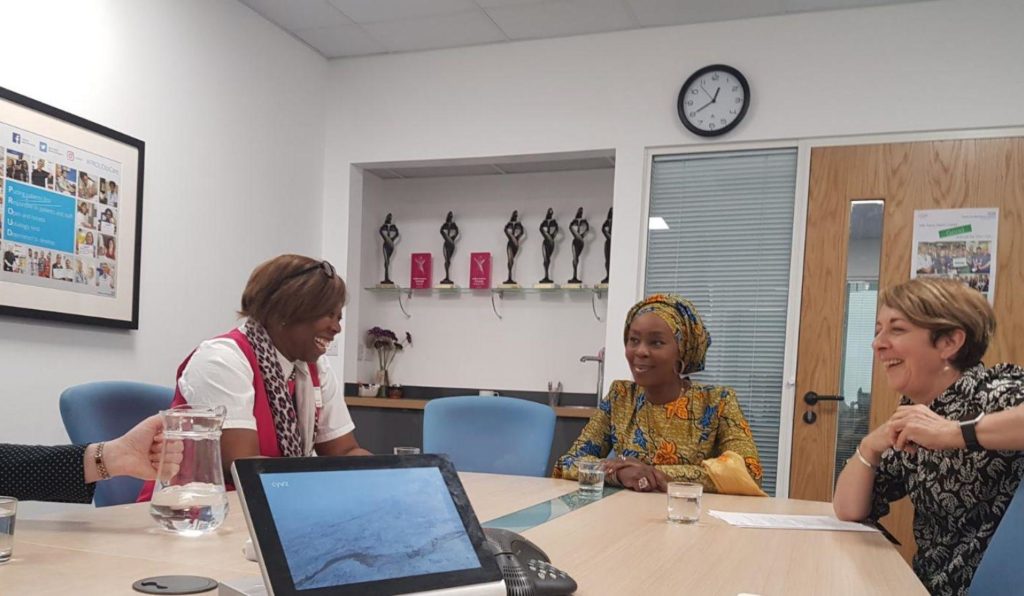
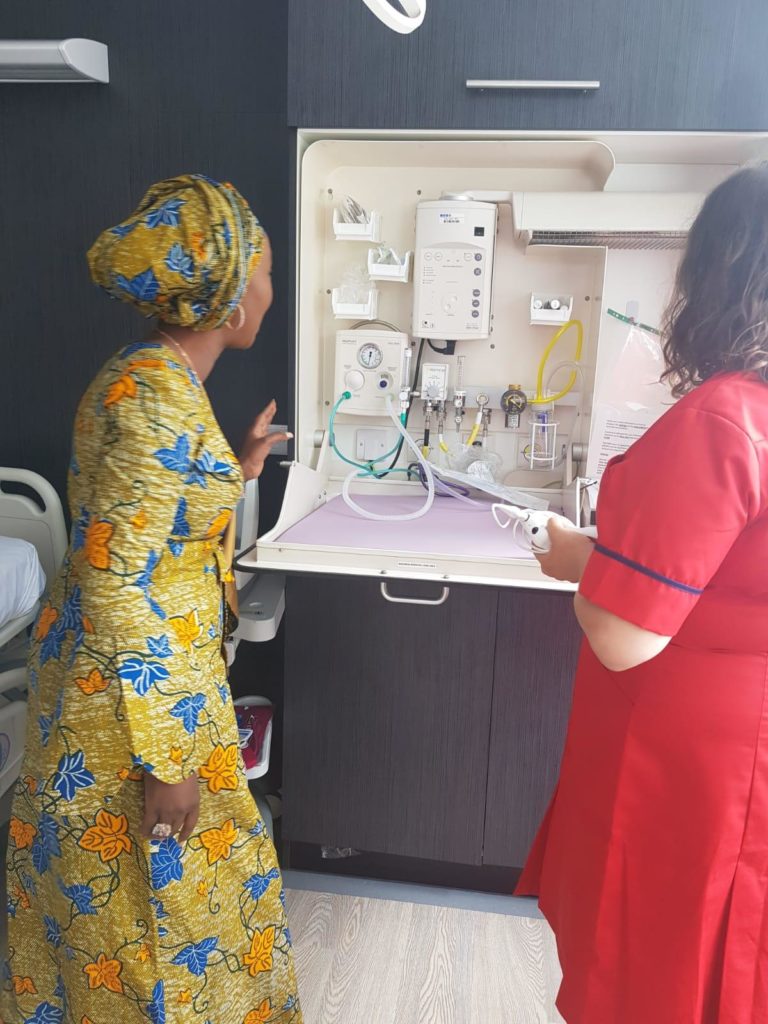
As World Breastfeeding Week 2019 drew to a close yesterday, Toyin Ojora Saraki conducted an official visit to the maternity ward of the Chelsea and Westminster Hospital NHS Foundation Trust. In her meetings with senior staff, including Zoe Penn, Medical Director, Victoria Cochrane, Director of Midwifery, Gubby Ayida, Medical Director of Women’s Services, and Kerry Huntington, Fundraising Director of ’CW +’ which acts as the official charity of the NHS Foundation Trust, Mrs Saraki explored how the 12,000 women a year who give birth at the Chelsea and Westminster Hospital are cared for. Mrs Saraki was keen to learn more about the hospital’s midwifery-led system wand and obstetric model of care, which includes specialist support for more complex pregnancies and health conditions with a foetal medicine unit.
Mrs Saraki, whose Wellbeing Foundation Africa is partners with the Liverpool School of Tropical Medicine Centre for Maternal and Newborn Health’s Emergency Management of Obstetric And Newborn Care Simulation Skills Program in Nigeria, had been invited to visit the hospital in light of her “extensive experience, passion and global standing” in the field of midwifery, and as Global Goodwill Ambassador for the International Confederation of Midwives (ICM), and Special Adviser to the Independent Advisory Group of the World Health Organization Regional Office for Africa.
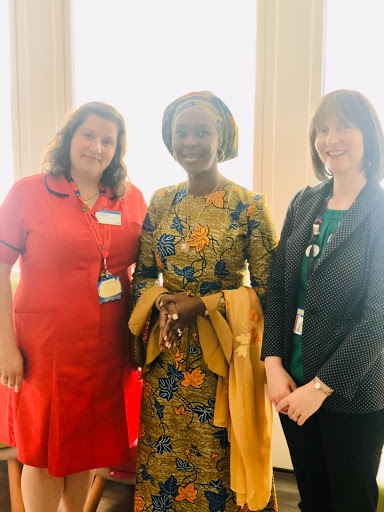
Following the meetings and tour of the hospital, Mrs Saraki commented:
“I commend the Chelsea and Westminster Hospital NHS Foundation Trust for its superb, midwife-led maternity care. I was struck today not only by the excellent standards that women can expect at the hospital, but also by the culture of respect that is ubiquitous amongst staff.”
“I am impressed to observe the workings of primary, secondary and tertiary specialist referrals providing an unbroken continuum of maternity care, as an essential core of universal health coverage services.”
“At the Wellbeing Foundation Africa, our MamaCare midwives also lead the way with quality care, saving many lives and helping women and infants to thrive. I look forward to working with the Chelsea and Westminster Hospital NHS Foundation Trust to share “research bench to bedside” best-practice models of maternity services, and bring the best possible standards of care to women all over the world – no matter where they give birth.”
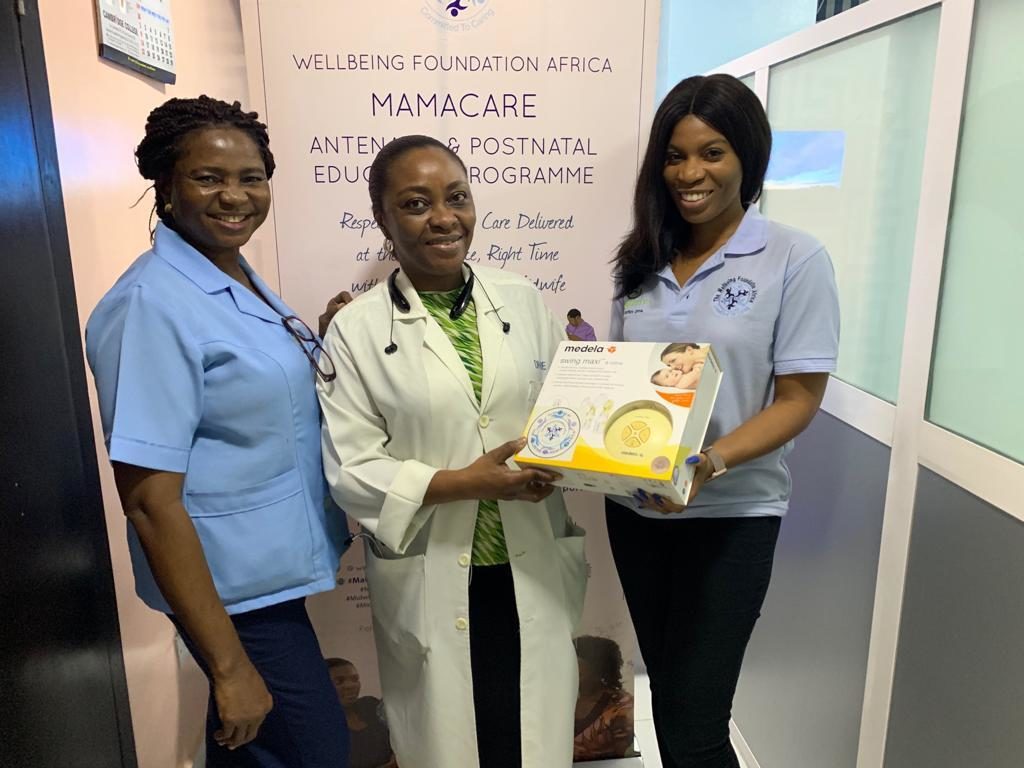
Mrs Saraki’s visit coincided with World Breastfeeding week, during which the Wellbeing Foundation Africa launched its ‘Neonatal Intensive Care Lactation Support Pilot Program.’ The WBFA’s midwives support and promote the World Health Organisation’s Ten Steps To Breastfeeding in 655 health centres and hospitals across its Mamacare, Mamacare+N and Alive and Thrive Infant and Young Child Feeding, birth preparedness, antenatal and postnatal education programmes.
The Foundation donated breastfeeding equipment to the Neonatal Intensive Care Units of medical facilities in Lagos, Kwara and Kaduna States and Abuja. This will help the facilities to provide optimal neonatal intensive care feeding for premature and sick infants, this will ensure that fragile neonates may more easily benefit from the immunity provided from colostrum, which serves as the first immunity for newborns.
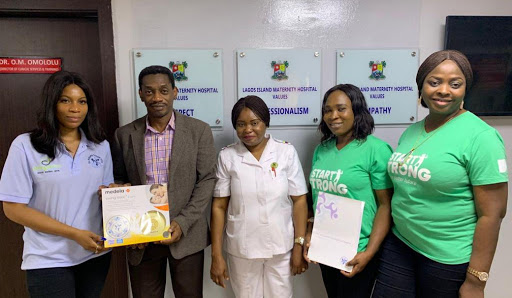
Since 2011, the WBFA’s midwives have supported and promoted the World Health Organisation’s Ten Steps To Breastfeeding in 655 health centres and hospitals across its Mamacare, Mamacare+N and Alive and Thrive Infant and Young Child Feeding, birth preparedness, antenatal and postnatal education programmes. Our programmes promote infant and young child nutrition from multiple levels and channels, creating a baby-friendly environment, conducive to optimal mother and baby breastfeeding practices.
Through institutional and community advocacy, along with one-on-one and class based interpersonal communication, counsel and care, the Wellbeing Foundation Africa continues to overcomes barriers to early and exclusive breastfeeding. We strive to improve the diets and frequency of meals in young children in Nigeria.
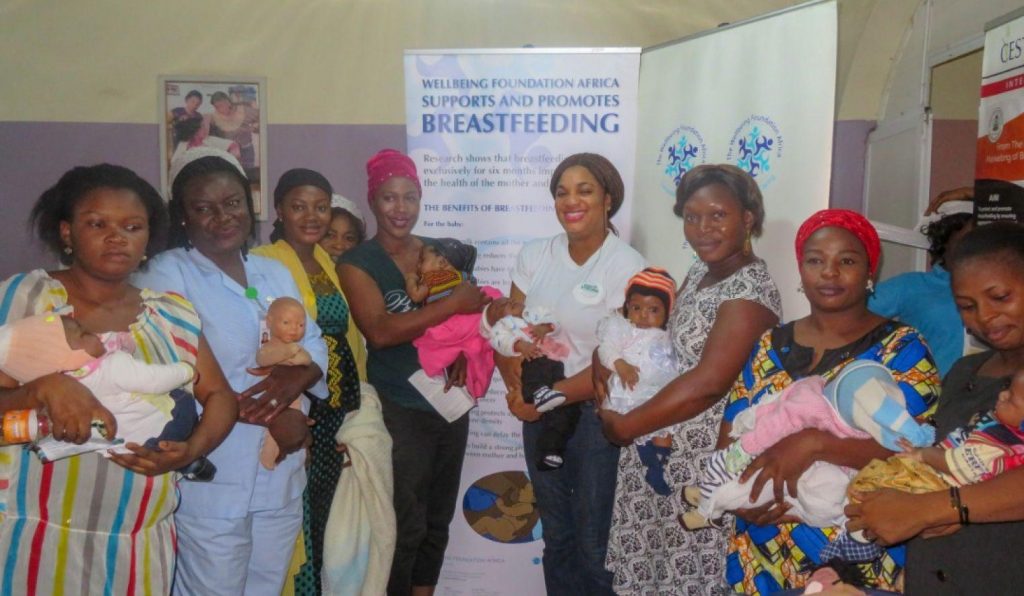
he Wellbeing Foundation Africa continues to harness global research findings related to human milk and breastfeeding into innovative breastfeeding support programs.
Through new scientific discoveries surrounding the anatomy of the lactating breast and how the infant removes milk from the breast, the Wellbeing Foundation Africa is committed to developed set of solutions to support Neonatal Intensive Care Units (NICUs) in providing milk and improving breastfeeding.
The Wellbeing Foundation Africa understands the challenges of providing milk in the NICU. Both from the from the mother’s side, where there can be a struggle to produce an adequate milk supply, and from the infant’s side, as babies may experience challenges ingesting the milk..
The NICU Lactation Support Pilot Program is directed towards obtaining human milk, promoting human milk feeding, and supporting all infants in achieving breastfeeding as early as possible.
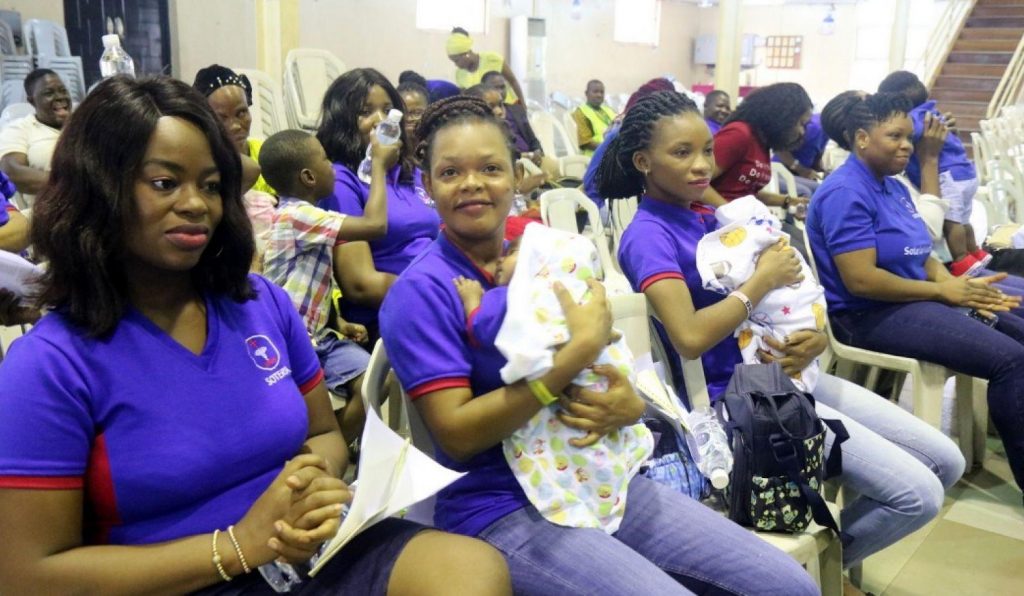
Our goal is to provide research-based products, together with the educational materials, is to overcome the difficulties associated with human milk provision.
This World Breastfeeding Week, which has the theme “Empower Parents; Enable Breastfeeding”, we have donated state-of-the-art Medela products to a number of facilities. These facilities include Lagos Island Maternity, Omotayo Hospital and Lifeline Children’s Hospital in Lagos State, Bwari General Hospital and Maitama General Hospital in Abuja, University of Ilorin Teaching Hospital and General Hospital Ilorin in Kwara State, and Giwa Hospital in Kaduna State.
In her statement, the Founder-President of the Wellbeing Foundation Africa, H.E. Mrs Toyin Ojora Saraki, commented:
“The Wellbeing Foundation Africa is pleased to be donating these Medela products to the Neonatal Intensive Care Units of these selected hospitals across Lagos, Kwara, Kaduna States and Abuja. This is part of our foundation’s goal to improve newborn health across the country, reducing neonatal mortality.”
“I am pleased to support this NICU Pilot in Nigeria to promote early (within the first 48 hours of life) buccal administration of mother’s own milk, and specifically colostrum, to reduce rates of Necrotising Enterocolitis, late onset invasive infections, and mortality in preterm infants.”
“We are also keen on building on the successes of our MamaCare Antenatal and Postnatal Education programme and the Alive and Thrive Infant and Young Child Feeding programme this World Breastfeeding Week, both of which have significantly contributed to the improvement of newborn nutrition, especially the promotion of early initiation to breastfeeding, exclusive breastfeeding for the first six months and proper complimentary feeding after six months.”
“We are encouraged by the progress achieved through our various programmes and we are determined to use this World Breastfeeding Week to carry out more milestone projects, of which this donation to healthcare facilities across the country is just one. It is our responsibility as stakeholders to provide strategic solutions to the challenges of stunting, wasting, under-weight and general malnutrition in infants and young children, and ensure their healthy growth and development. The Wellbeing Foundation Africa recognizes and promotes the importance of breast milk for premature and sick neonates as the first and optimal nutrition in fragile situations.”
Categories